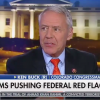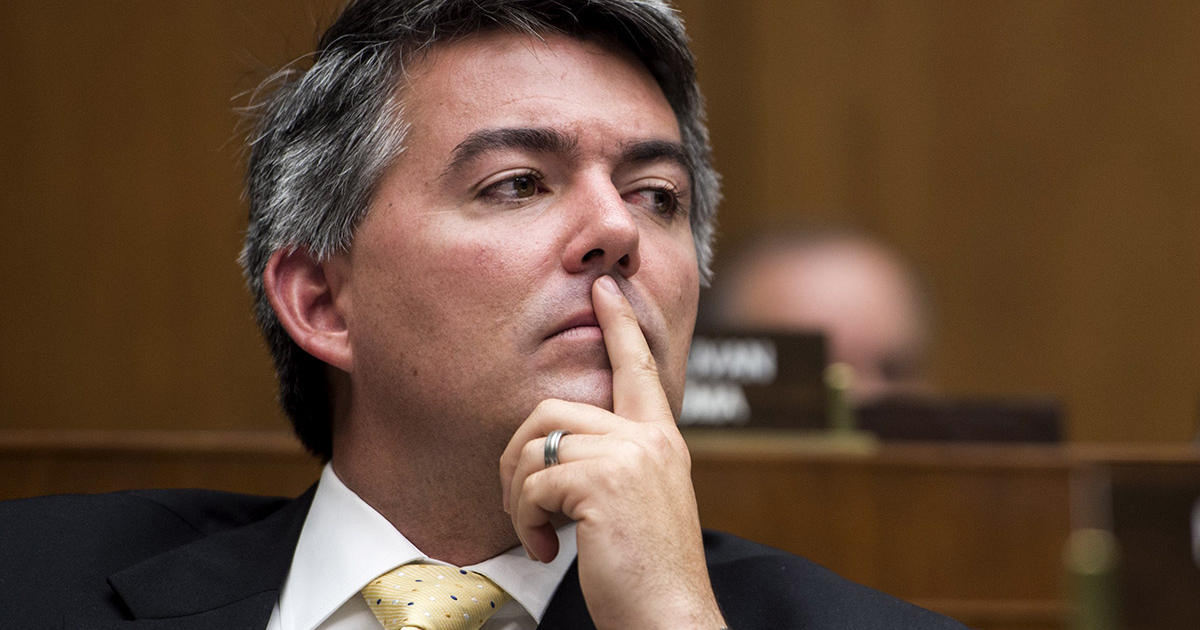While a growing number of Americans view the Trump administration’s handling of the COVID-19 outbreak as botched or delayed, U.S. Sen. Cory Gardner (R-CO) continues to not criticize the president over his handling of the pandemic, instead even praising the Administration at times.
Most of the U.S. Senate’s vulnerable Republicans, like Gardner, who face tough re-election battles in November, are also praising the president.
One exception is Susan Collins of Maine.
You might think Collins and Gardner would be on the same page about criticizing the president, given that both their states voted for Hillary Clinton over Trump in 2016, and they’re widely seen as the two most endangered members of the Senate.
But it turns out Collins is much more likely to criticize the president than Gardner — including over the pandemic. This, even though Clinton won by a greater margin in Colorado (4.9%) than in Maine (3%).
Collins told Politico in mid-April that she thought Trump’s handling of the coronavirus outbreak was “very uneven.” Not a blazing critique but more than we’ve seen from Gardner.
“It’s been very uneven,” Collins said, assessing Trump’s COVID response. “I think when he stays on message it’s helpful,” “But when he gets off message or brings up issues that have nothing to do with the coronavirus, it is not reassuring to the American people.”
Overall, Collins votes with Trump about 70% of the time, versus’ Gardner’s 90%.
Collins once cast a critical vote with the late Sen. John McCain of Arizona to save Obamacare, over Trump’s objections, while Gardner hasn’t wavered from his crusade, which began when he launched his first campaign for Congress, to kill the national health care law.
RELATED Gardner vs. Collins: A Comparison of Two Republican From States that Voted for Clinton Over Trump
Other vulnerable Senate Republicans, like Sen. Martha McSally of Arizona, are taking an approach similar to Gardner’s.
Democrats have been eying McSally’s seat in recent months, as her opponent — Mark Kelly, astronaut and husband of former Congresswoman Gabby Giffords — rises in the polls.
McSally traveled with Trump to a Honeywell facility in her home state of Arizona earlier this month and praised his leadership on obtaining personal protective equipment.
“It was an honor to host the president in Arizona,” McSally told a local CBS station after the trip. McSally has also taken up the president’s messaging on U.S. relations with China, claiming in a tweet last week that “China unleashed COVID-19, lied about it & must be held accountable. The Chinese [government] doesn’t know who they’re dealing with if they think I’m going to be intimidated!”
Two other vulnerable Republicans, Joni Ernst of Iowa and Thom Tillis of North Carolina, have consistently praised the Trump administration’s handling of the coronavirus outbreak.
Ernst thanked Trump for “standing with our farmers” after he announced the federal government would buy $3 million worth of dairy, meat, and produce.
“Generally, I feel [Trump’s] done a very good job,” Ernst was quoted as saying. “He was right on it from day one prohibiting travel from certain countries and so forth. I think it was the right thing to do.”
Tillis handed Trump similar praise.
“We’ll be doing millions and millions of tests, we’ll do the antibody tests, we’ll have good reports, I think, on the beginnings of economic progress,” Tillis told Politico earlier this month. “And I think all those things will benefit the president and they’ll benefit me.”
The Lincoln Project — a Super PAC run in part by George Conway, the husband of Kellyanne Conway, a senior advisor to the president — cited the Politico story in an ad released last week blasting Tillis.
Similarly, Kelly Loeffler of Georgia, who’s also vulnerable, praised the president for his leadership and blasted House Democrats’ $3 trillion proposal as a “socialist wish list” in one recent tweet.
However, Loeffler has also been grappling with allegations of insider trading after the Senate was briefed about the coronavirus earlier this year, and is touting her relationship with the president, according to the Atlanta Journal-Constitution.




